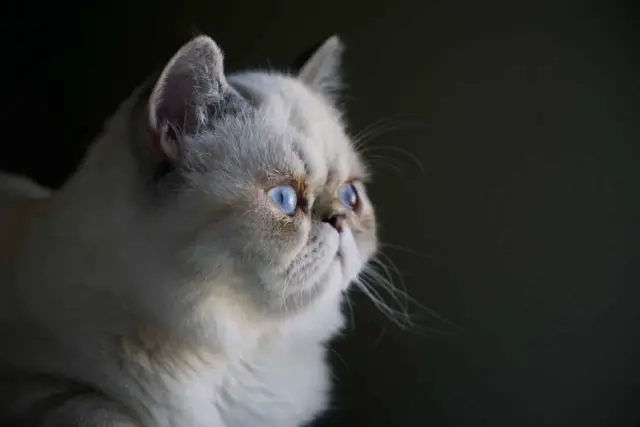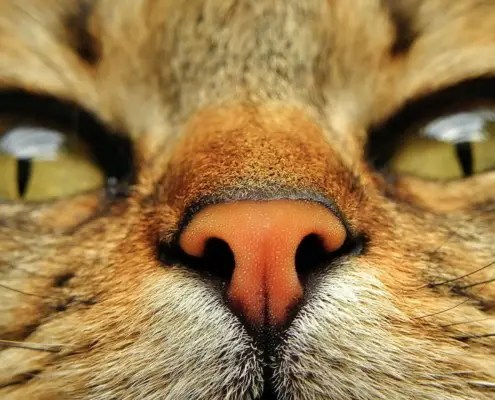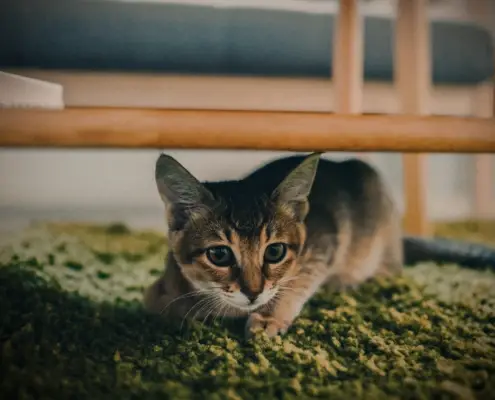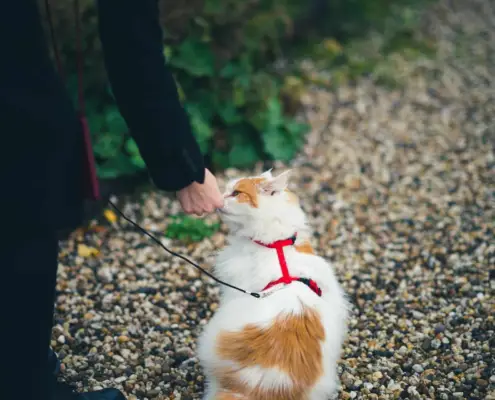
As our feline companions grow older, it is natural for us to wonder if their senses decline with age. Cats rely heavily on their senses to navigate the world around them, so understanding how aging affects their vision, hearing, smell, taste, and touch is crucial in providing them with the care they need. In this article, we will delve into the fascinating world of the aging cat and explore whether their senses weaken as they get older.
Understanding the senses of cats
Before we dive into the effects of aging on cat senses, let’s take a moment to understand how these senses work in our furry friends. Cats have highly developed senses that allow them to thrive in their environment. Their vision is designed for hunting, with excellent night vision and the ability to perceive movement with precision. Their hearing is incredibly sensitive, allowing them to detect even the slightest rustle or chirp. Cats have an extraordinary sense of smell, which helps them explore their surroundings and communicate with other felines. They also have a keen sense of taste, although they are known for being more selective with their food preferences. Lastly, their sense of touch is vital for social bonding and exploring their surroundings.
Cat vision and aging
As cats age, their vision may undergo changes. Just like humans, cats may develop age-related conditions such as cataracts or glaucoma, which can impair their vision. They may also experience a decline in visual acuity, making it harder for them to see objects or detect movement. However, it’s important to note that not all cats will experience significant visual decline with age. Regular check-ups with a veterinarian can help identify any issues and ensure appropriate care.
Cat hearing and aging
Cats have an acute sense of hearing, but this can also be affected by age. Some older cats may experience a decline in their ability to hear high-frequency sounds. They may also be less responsive to certain auditory cues. However, it’s crucial to differentiate between natural age-related changes and potential underlying health issues. Regular ear inspections and consultations with a veterinarian can help assess and address any hearing concerns.
Cat smell and aging
A cat’s sense of smell plays a vital role in their daily life. It helps them identify familiar scents, locate prey, and communicate with other cats. While there is limited research on how aging specifically affects a cat’s sense of smell, it is believed that age-related changes can occur. Some older cats may experience a decrease in their olfactory capabilities, which could impact their appetite or ability to recognize familiar scents. Providing a balanced and enticing diet, along with regular veterinary check-ups, can help address any potential issues.
Cat taste and aging
Like humans, cats’ taste preferences can change with age. While it is unclear whether their taste buds become less sensitive, some older cats may develop a decreased appetite or become more selective in their food choices. Dental issues, which are more prevalent in older cats, can also influence their eating habits. Maintaining good dental hygiene and offering a variety of palatable and nutritious foods can help support their nutritional needs as they age.
Cat touch and aging
The sense of touch is essential for cats. It allows them to establish social bonds, explore their environment, and perceive different textures. While there is limited research on the effects of aging on a cat’s sense of touch, it is crucial to provide them with a comfortable and enriched environment. Soft bedding, scratching posts, and interactive toys can help stimulate their sense of touch and provide them with opportunities for physical engagement.
Signs of sensory decline in aging cats
As cats age, they may exhibit certain signs that indicate a decline in their sensory abilities. These signs can include:
- Changes in behavior, such as increased vocalization or disorientation.
- Difficulty seeing or bumping into objects.
- Failure to respond to auditory cues.
- Loss of appetite or changes in food preferences.
- Avoidance of social interaction or decreased grooming.
If you notice any of these signs in your aging cat, it is essential to consult with a veterinarian. They can help assess the situation, provide appropriate treatment if necessary, and offer advice on how to adapt your cat’s environment to better support their changing needs.
Tips for caring for an aging cat
Caring for an aging cat requires attentiveness and understanding. Here are some tips to promote a comfortable and enriched life for your furry companion:
- Regular veterinary check-ups: Schedule routine visits to monitor your cat’s overall health and address any concerns promptly.
- Appropriate nutrition: Provide a balanced diet that meets the nutritional needs of your aging cat. Consult with your veterinarian for specific dietary recommendations.
- Environmental adaptations: Make adjustments to your cat’s environment to accommodate any sensory changes. For example, provide well-lit areas, use contrasting colors for food and water bowls, and ensure easy access to litter boxes.
- Dental care: Maintain good dental hygiene by regularly brushing your cat’s teeth and providing dental treats or toys to promote oral health.
- Mental and physical stimulation: Engage your cat in interactive play sessions and provide puzzle toys to keep their mind and body active.
- Comfortable resting places: Provide soft and cozy bedding for your cat to rest on, ensuring they have a quiet and comfortable space to relax.
Promoting a comfortable and enriched life for aging cats
While some cats may experience a decline in their senses as they age, it is not a universal rule. Each cat is unique, and their sensory abilities may vary. By understanding the potential changes that can occur and providing appropriate care, we can ensure that our aging feline friends continue to lead comfortable and enriched lives. Regular veterinary check-ups, environmental adaptations, and attentive care are key to supporting our beloved cats as they gracefully navigate the journey of aging.
If you have an aging cat, consult with your veterinarian to develop a tailored care plan that addresses their specific needs. Your furry companion deserves the best care possible as they embark on their golden years.
If you enjoyed my article, I would appreciate you sharing it with your network.

Sima Ndlebe
Sima writes for CatBuzz. He is interested in Cats, Health and Fitness, and Entrepreneurship.
Published: 13 November 2023



